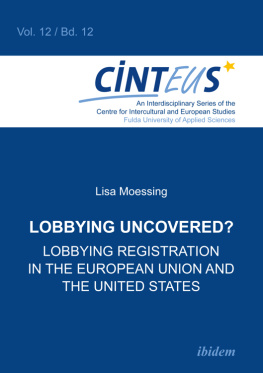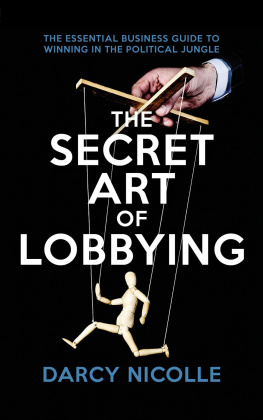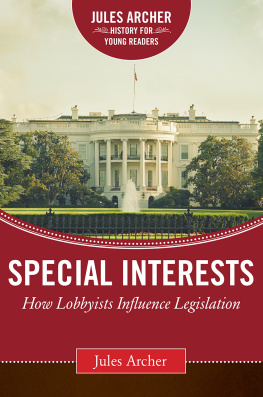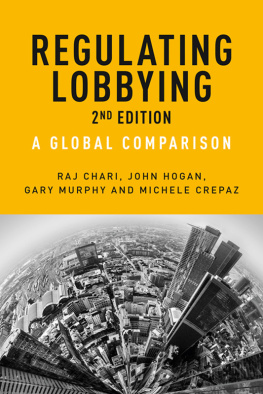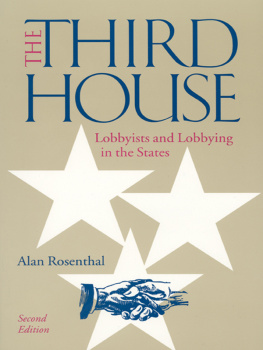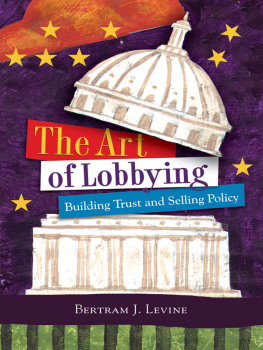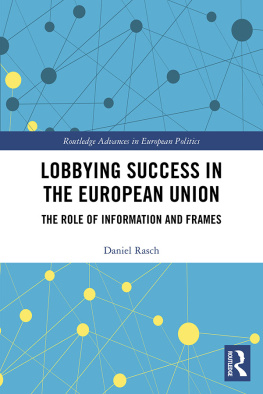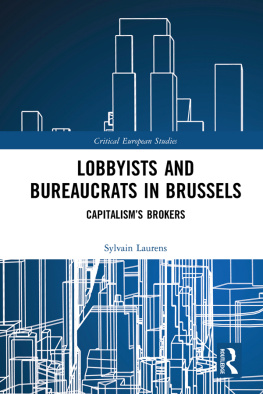ibidem Press, Stuttgart
Editorial
This series is intended as a publication panel of the Centre of Intercultural and European Studies (CINTEUS) at Fulda University of Applied Sciences. The series aims at making research results, anthologies, conference readers, study books and selected qualification theses accessible to the general pu b lic. It comprises of scientific and interdisciplinary works on inter- and transcu l turality; the European Union from an interior and a global perspective; and problems of social welfare and social law in Europe. Each of these are fields of research and teaching in the Social- and Cultural Studies Faculty at Fulda University of Applied Sciences and its Centre for Intercultural and European Studies. We also invite contributions from outside the faculty that share and enrich our research.
Gudrun Hentges, Volker Hinnenkamp, Anne Honer & Hans-Wolfgang Platzer
Editorial
Die Buchreihe versteht sich als Publikationsforum des Centrums fr inter kulturelle und europische Studien (CINTEUS) der Hochschule Fulda. Ziel der CINTEUS-Reihe ist es, Forschungsergebnisse, Anthologien, Kongress reader, Studienbcher und ausgewhlte Qualifikationsarbeiten einer interes sierten ffentlichkeit zugnglich zu machen. Die Reihe umfasst fachwissen schaft liche und interdisziplinre Arbeiten aus den Bereichen Inter- und Tran s kulturalitt, Europische Union aus Binnen- und globaler Perspektive sowie wohlfahrtsstaatliche und sozialrechtliche Probleme Europas. All dies sind Fachgebiete, die im Fachbereich Sozial- und Kulturwissenschaften der Hoc h schule Fulda University of Applied Sciences und dem angegliederten Cen t rum fr interkulturelle und Europastudien gelehrt und erforscht werden. Au s drcklich ein geladen an der Publikationsreihe mitzuwirken sind auch solche Studien, die nicht im Hause entstanden sind, aber CINTEUS-Schwerpunkte berhren und bereichern.
Gudrun Hentges, Volker Hinnenkamp, Anne Honer & Hans-Wolfgang Platzer
Foreword
Ever since its early days, the process of European Integration has been a c companied by interest intermediation of societal actors. During the past de c ades, the scene of EU lobby organizations has been continuously growing. This development and the important role lobbyism plays in EU decision ma k ing processes have caused heavy interest among academic researchers. T o day EU lobbyism can be seen as one of the most important research fields within EU Studies.
The study at hand is a valuable and innovative contribution to the scientific research in EU lobbyism for several reasons.
Its overall research perspective is to explore the EU s efforts in making lobb y ism more transparent. After years of discussions and contested negotiations, the EU established a voluntary Transparency Register in 2011.
T his book is one of the first systematic comparisons of the voluntary Tran s parency Register of the European Union with the m andatory Transparency Re gister of the United States . An essential part of the study is shaped by the perceptions of personnel of European institutions, Brussels-based lobbyists, and lobby critics. These qualitative empirical findings, gained by semi-structured interviews, allow for deep insights into the practical working mec h anisms of the EUs Transparency Register, its applicability and efficiency, its problems and shortcomings.
Dealing with the topic of democratic EU governancetransparencyEU lob by ism, this book addresses a broad audience of politically interested rea d ers.
Hans -W olfgang Platzer
Fulda, June 2014
I ndex of abbreviations
ABBREVIATIONS
ALTER-EU Alliance for Lobbying Transparency and Ethics Regulation
BDI Bundesverband der Deutschen Industrie e.V .
(The Voice of German Industry)
BM Burson - Marsteller
CHR Clerk of the House of Representatives
COREPER Committee of Permanent Representatives
CRP Center for Responsive Politics
DG Directorate - General
DLR Deutsches Zentrum fr Luft- und Raumfahrt
(German Aerospace Center)
ECJ European Court of Justice
ECSC European Coal and Steel Community
EP European Parliament
ETI European Transparency Initiative
EU European Union
FARA Foreign Agents Registration Act
FRLA Federal Regulation of Lobbying Act
GAO US Government Accountability Office
GSC General Secretariat of the Council
HLOGA Honest Leadership and Open Government Act
IIA Interinstitutional Agreement
JTRS Joint Transparency Register Secretariat
LDA Lobbying Disclosure Act
LD-1 Lobbying registration (United States)
LD-2 Activity-related and financial reports (United States)
LD-203 Certain contributions reports (United States)
MEP Member of European Parliament
MP Member of Parliament
OECD Organisation for Economic Co-operation and Development
OLP Ordinary Legislative Procedure
PAC Political Action Committee
ROIR Register of Interest Representatives
SOS Secretary of the Senate
TEU Treaty on EU
TFEU Treaty on the Functioning of the EU
TR Transparency Register
WWF World Wide Fund for Nature
P reamble
The motivation for bringing about this book originated from the general que s tion whether lobbying proves to be as opaque, influential , and malicious as the image of the profession seems to be publicly maintained, and which measures of control can be imposed. Considering that the mandatory regi s tration system installed in the United States is obviously perceived as a role model for the disclosure of lobbying , it has been a key incentive for the author to examine it in detail, which further allows identifying possible weaknesses of this model register as well . Moreover, by recommending measures of i m provement, the author actively participates in the discussion about the rev i sion of the European Unions Transparency Register. Special thanks are de d icated to all interviewees, who have contributed to this book th rough personal, e-mail , or phone interviews or simply by providing additional information. Pa r ticularly with regard to personal expertise with registration mechanisms, the scope of research of this book and its constructive analysis would not have been possible without the inputs from key respondents. The reason for some interviewees to be quoted in anonymity is not only based on the fact that lo b byism is still a sensitive issue, but also that , in some cases , views are pe r sonal and cannot be authorized as an official view of the entity represented by the individual. Therefore, especially the statements made by the inte r viewed Council Official cannot be regarded as an official opinion.
I ntroduction
1.1 P roblem statement
Today lobbying tends to be approached as a rather mysterious and non tran s parent profession , which seeks to tailor legislation to its ends and is seen to occur as a gr a y area of politics . Several regulative mechanisms have been implemented in the past to monitor such activities in various democratic cou n tries in an effort to increase the transparency of lobbying and to enhance an open dialogue between political leadership, interest representatives, and the public. One of the most rece nt mechanisms is the Transparency Register (TR) of the European Union (EU) , which was launched in 2011 jointly by the European Parliament (EP) and the European Commission as part of the E u ropean Transparency Initiative (ETI) . Despite the ambitious approach and an increasing amount of registrants, regulation remains voluntary. The register lacks a clear and detailed definition of the lobbyist as such , disclosure r e quirements are partially misleading , and sufficient incentives for registration are still intensively debated. In contrast, the mandatory register in the United States is often referred to as one of the most advanced concepts of lobbying disclosure and frequently serves as an argument used by critics of the EUs voluntary approach. The US register was a result of the Lobbying Disclosure Act (LDA) in 1995; however, it is still imperfect in its conception. The study at hand contrasts both approaches by their scope and legal basis, identifies cu r rent weakness es and strengths, and points out criticism. Based on these fin d ings and by the involvement of personal expertise of lobbyists , EU and US o f ficials, scholars and lobby critics, this thesis identifies areas of the European model that require improvement. The book is also designed to enlighten its readers that even if the profession of lobbyists still maintains a huge influe n tial power on political decision-making, it is not necessarily as opaque and negative as usually conveyed, if one only takes a closer look.

